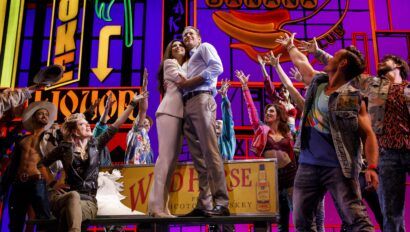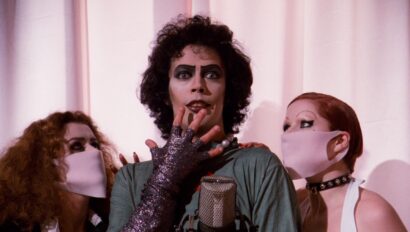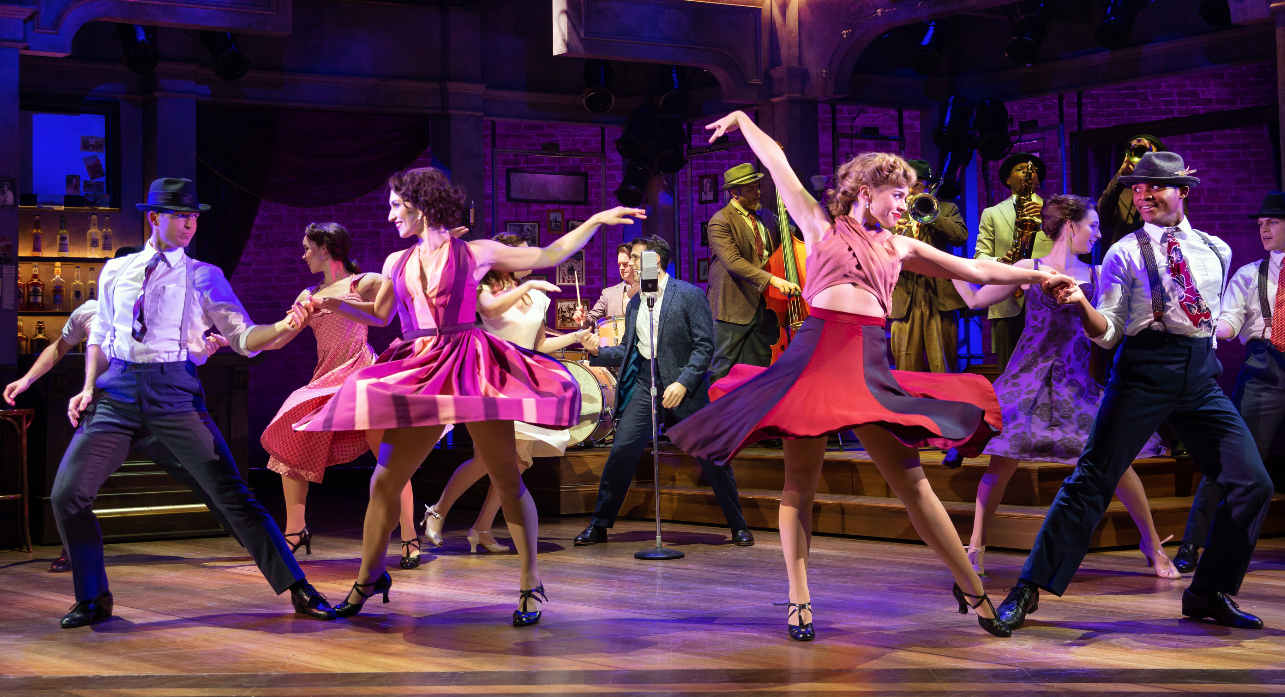
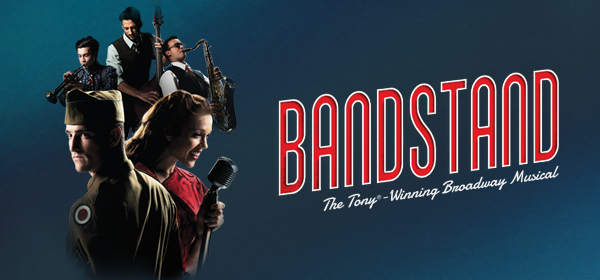
When writing partners Richard Oberacker and Robert Taylor were thinking of ideas for a new musical, they asked themselves a question: What would happen if you merged the style and passion of a golden age musical, like “South Pacific” or “On the Town,” with the grit and reality of “The Best Years of Our Lives,” William Wyler’s Academy® Award-winning film about World War II veterans attempting to adjust to civilian life? The two men began to explore what that could be. The result was the musical Bandstand, which comes to The Hanover Theatre and Conservatory for the Performing Arts Thursday, March 19 – Sunday, March 22. Bandstand combines a rich swing-inspired score with the story of a group of veterans and a war widow, who form a band to compete in a national broadcast radio contest. Each character deals with moving past the trauma, guilt and wounds they suffered as a result of the war.
A Recognizable Story
“We began with a series of recognizable story beats and then we basically followed the truth,” said Richard Oberacker, who wrote the music for Bandstand and collaborated with Robert Taylor on the book and lyrics.
“What would veterans, if they were musicians, need to make themselves feel back at home in society again? What would they have to say? What would their music sound like?”
Staging an Openhearted American Musical
To stage the piece, Oberacker turned to an old friend from theater camp in Ohio: Tony award-winning director/choreographer Andy Blankenbuehler. This was before he did musical staging for the worldwide phenomenon, “Hamilton.”
“I had been looking for a piece to do about World War II,” Blankenbuehler said.
“I’m really passionate about the 1940s and passionate about that generation of Americans, and all the sacrifices made. Also, I love the fashion, I love the sense of work, integrity and the American spirit. And, of course, I love the music and the dance that came with it. So, I was really excited about it.”
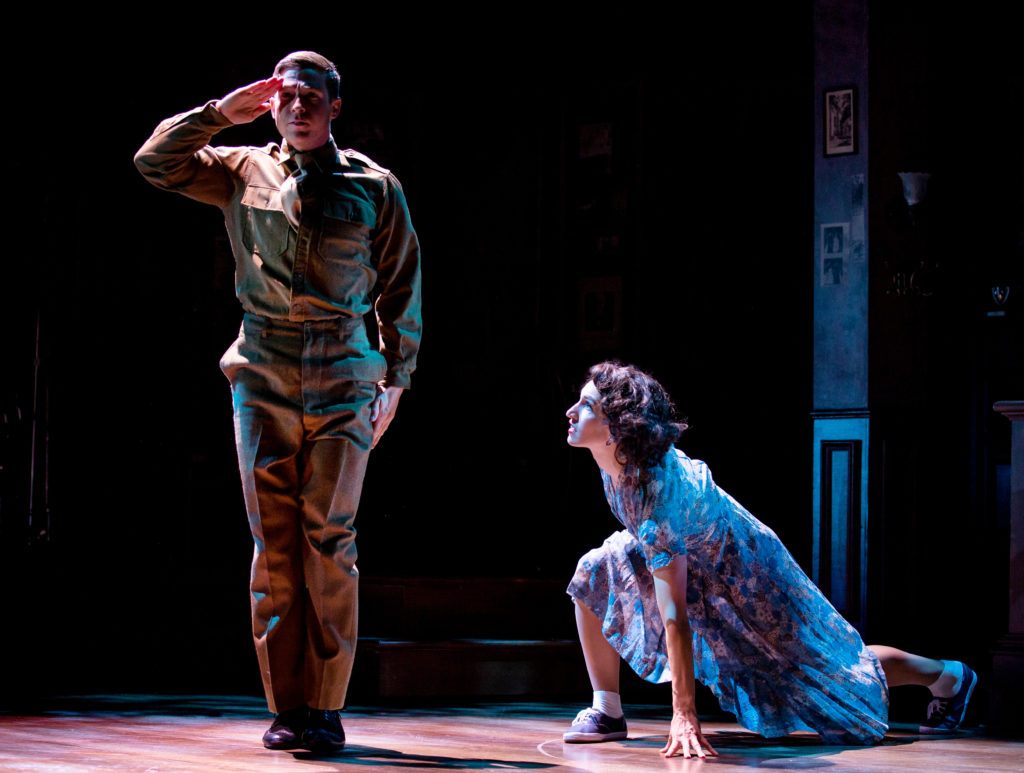
The trio did a deep dive into not only the period, but the kind of unexpressed emotional life of members of the “Greatest Generation.” Oberacker pointed out that post-traumatic stress disorder, or PTSD, is a contemporary term. Many World War II vets “didn’t understand what it was they were grappling with, because there was no vocabulary with which to even begin to address it.”
The two writers got in touch with a non-profit called Got Your 6 (military parlance for “got your back”), who arranged for them to meet veterans who told their own stories and looked over the script for inaccuracies.
A New Way to Swing
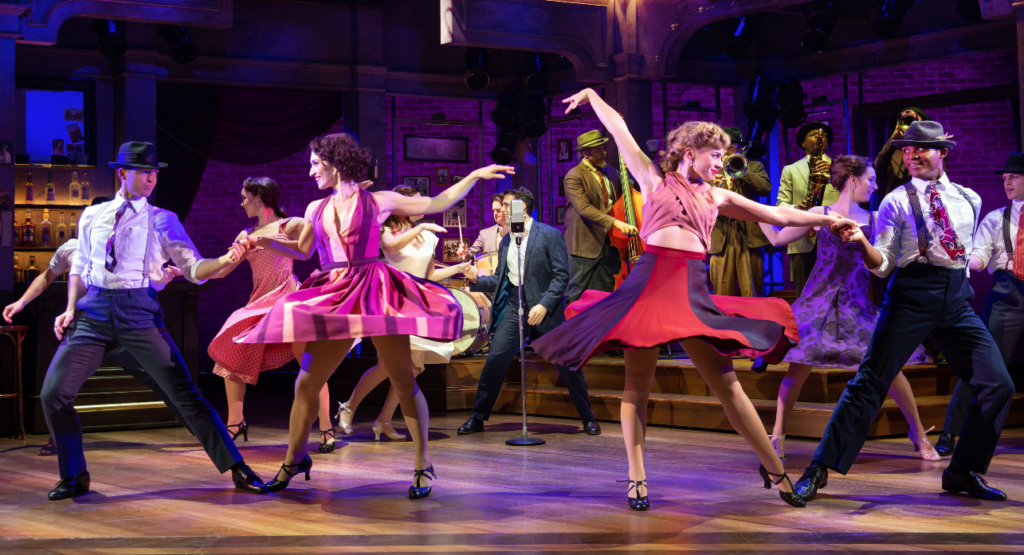
Blankenbuehler explored ways to physicalize the veterans’ experiences in dance and movement. He took swing dance steps and slowed them down.
“All of a sudden, you see the stress in somebody’s shoulders,” he explained. “You notice how deeply dug into their legs they are. They’re so low to the floor that they look physically like they’re in so much angst.”
In one stunning transition, he also came up with the idea of the veterans literally carrying their dead comrades on their backs. “What is weighing them down? Mostly it’s their fallen friends. Every step I take, this ghost is taking this step with me.” Broadway professionals were taken with Blankenbuehler’s complex, impressionistic choreography, awarding him a 2017 Tony® Award.
Casting the Band
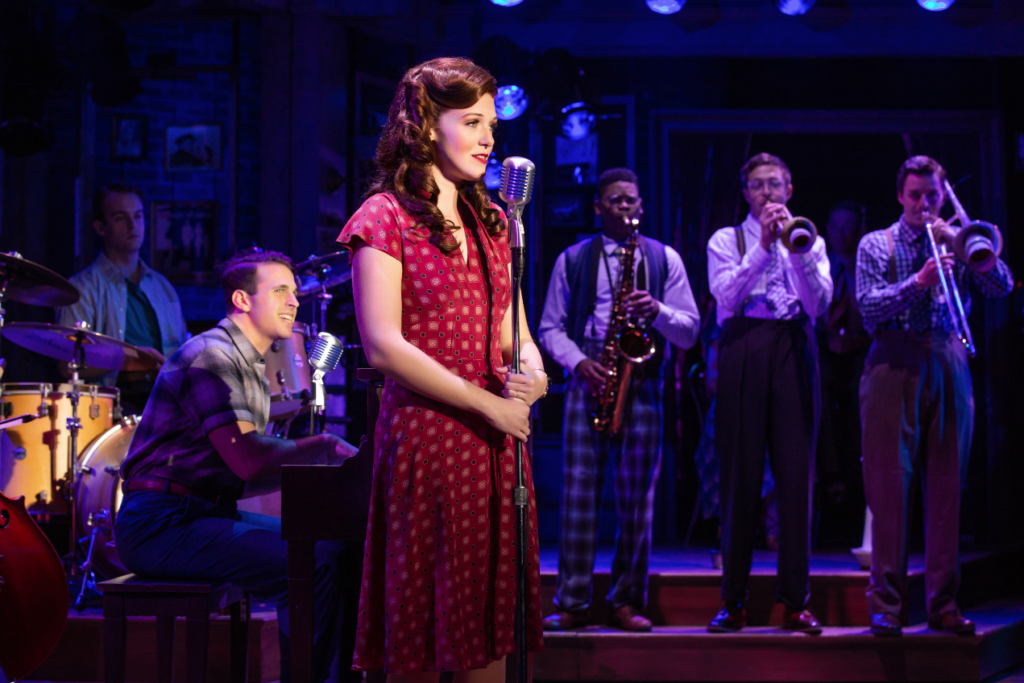
In making major characters actual musicians, who can play the score and improvise jazz licks, as well as act, sing and dance, Oberacker and Taylor created a true casting challenge.
“The important thing is the emotion the audience is getting,” said Blankenbuehler. “And ultimately, that’s also the hard part of casting, because in Bandstand, we had to find these men and women who could play music really well, who could speak. But there has to be something inherently emotional about them.”
Much of the emotion of Bandstand comes from the relationship between the two lead characters, Donny Novitski, a pianist and songwriter, and Julia Trojan, the singer/lyric writer who joins the band. Donny was the best friend of Julia’s husband, and was right beside him when he died in combat in the South Pacific. Their relationship, which grows from friendship to collaboration to genuine love, is fraught.
Blankenbuehler said Donny is a complicated, driven character, who’s initially hard to embrace.
“That was always an obstacle working on it, because we wanted to not make him unlikable, but we wanted to understand how broken he was inside,” Blankenbuehler explained. “So, there has to be something about him that has a yearning, that is pure and not egocentric.”
“For these men and these women, yes, they were dealing with these deep, deep, deep wounds. But the story that I want to tell is there is a way out. There is a way forward. In our lives today, if we’re really stressed about work or if we really feel like we’ve hit a dead end in life, there are ways forward. There are therapeutic things that make our hearts and our souls turn to fire and they lead us forward. That’s the story that I wanted to tell.”
It’s a story which Blankenbuehler said resonated for New York audiences, which included young people to veterans. He hopes it will resonate for audiences across the country, as Bandstand tours.
Don’t let the rhythm stall. Get your tickets for Bandstand today!
Photos by Jeremy Daniel.
